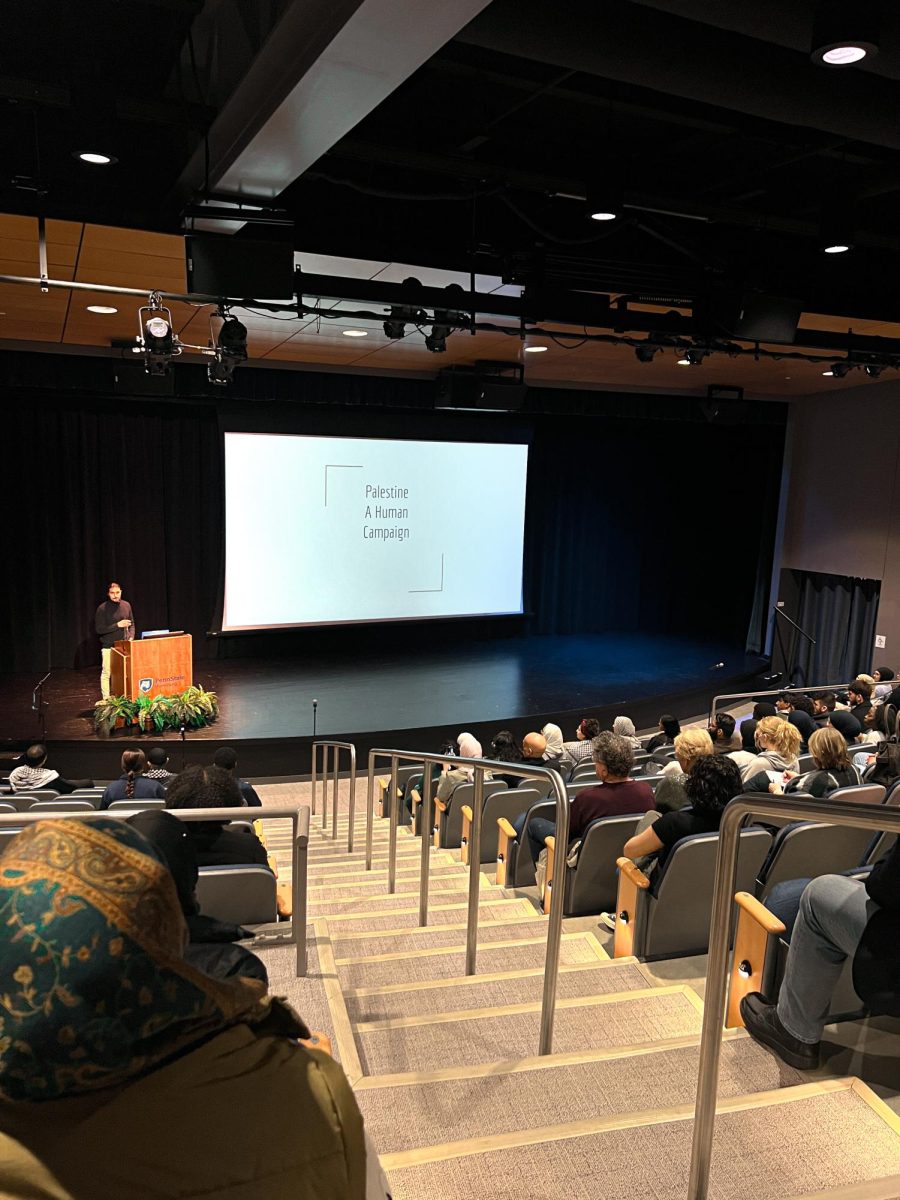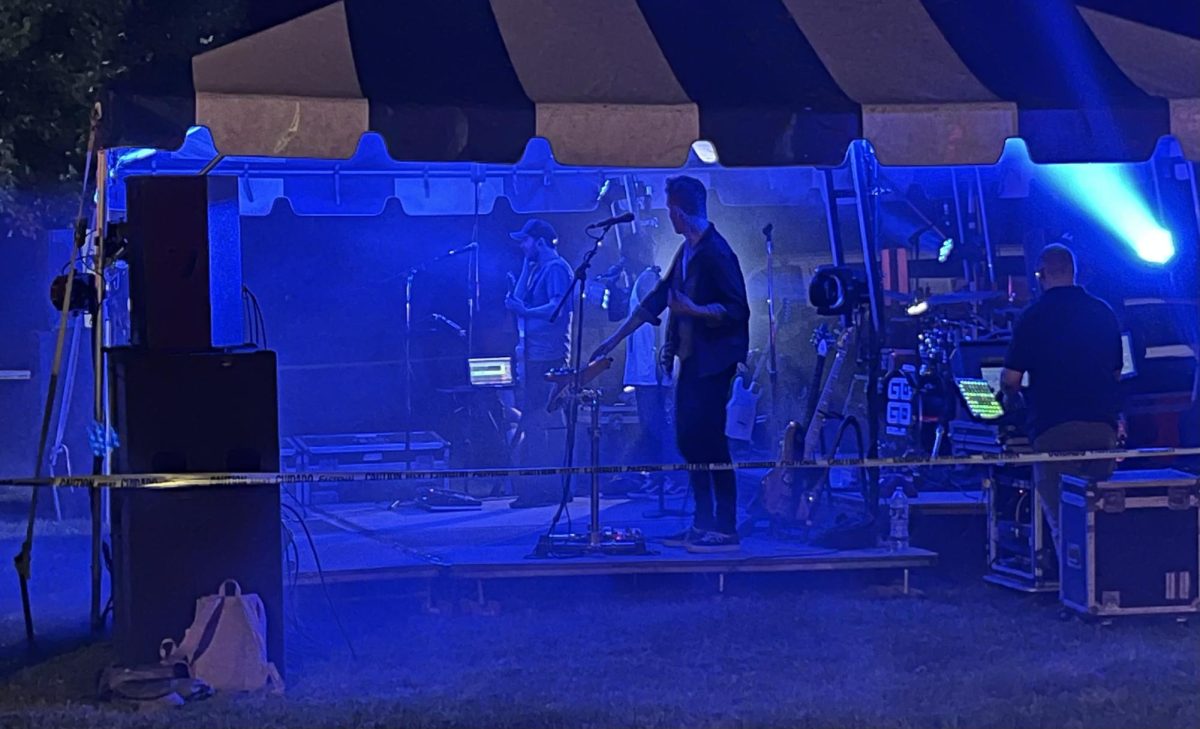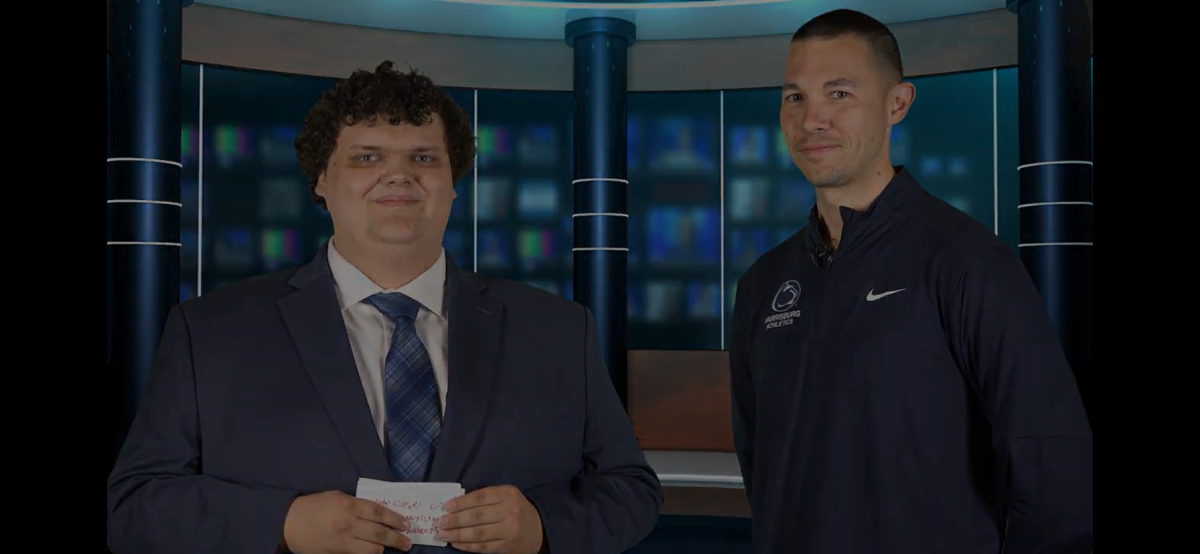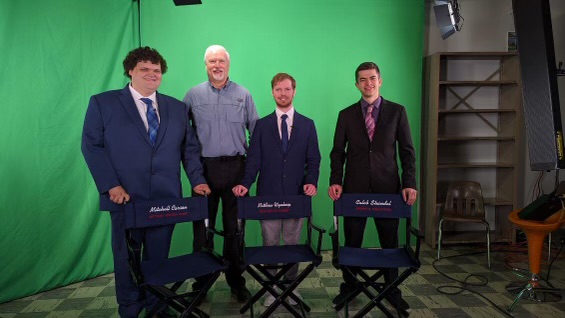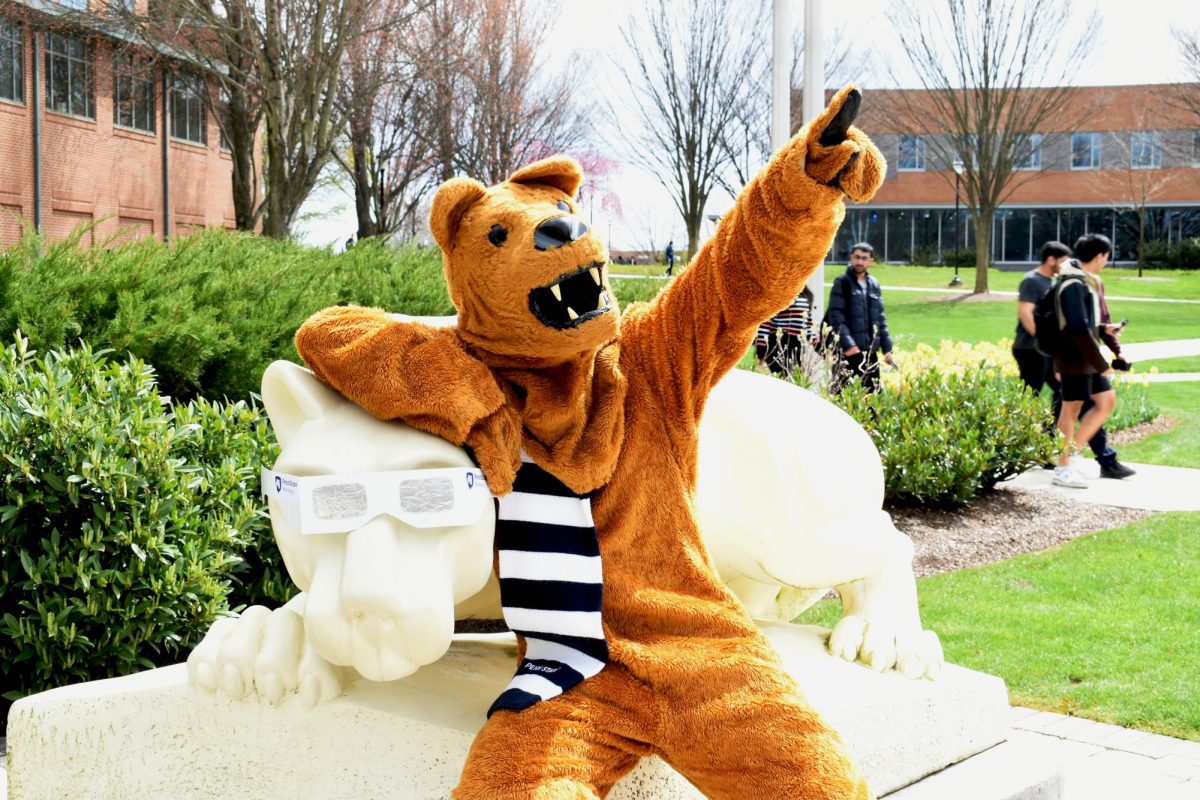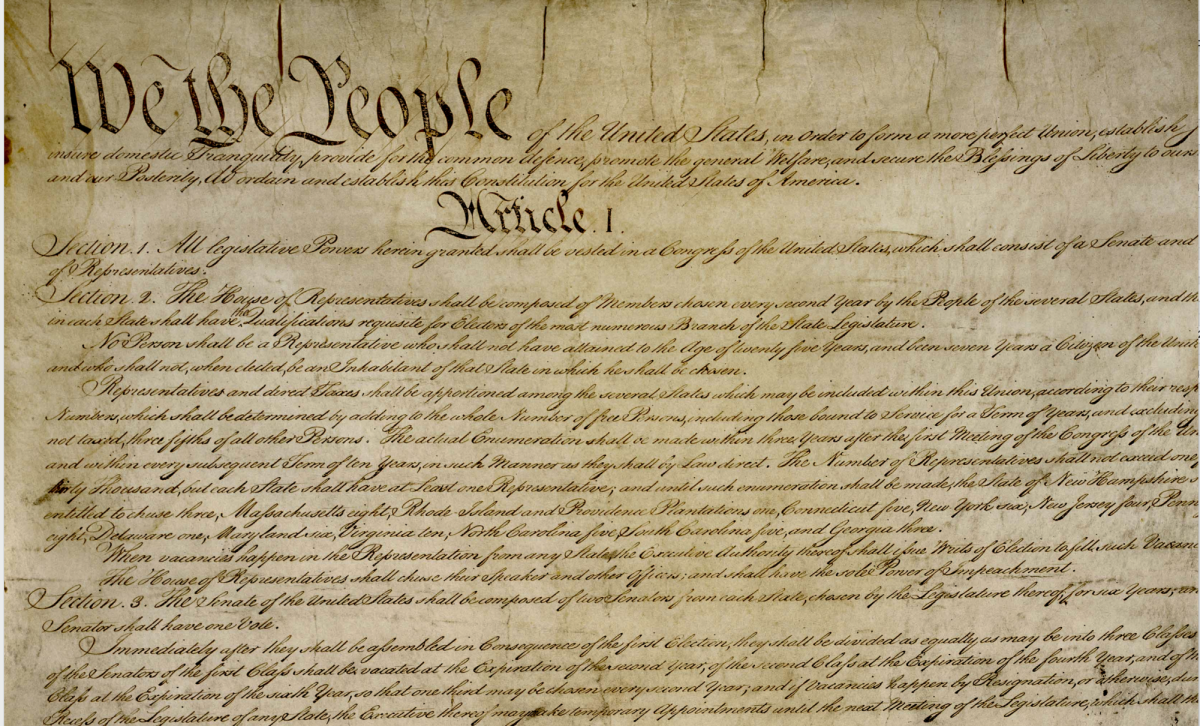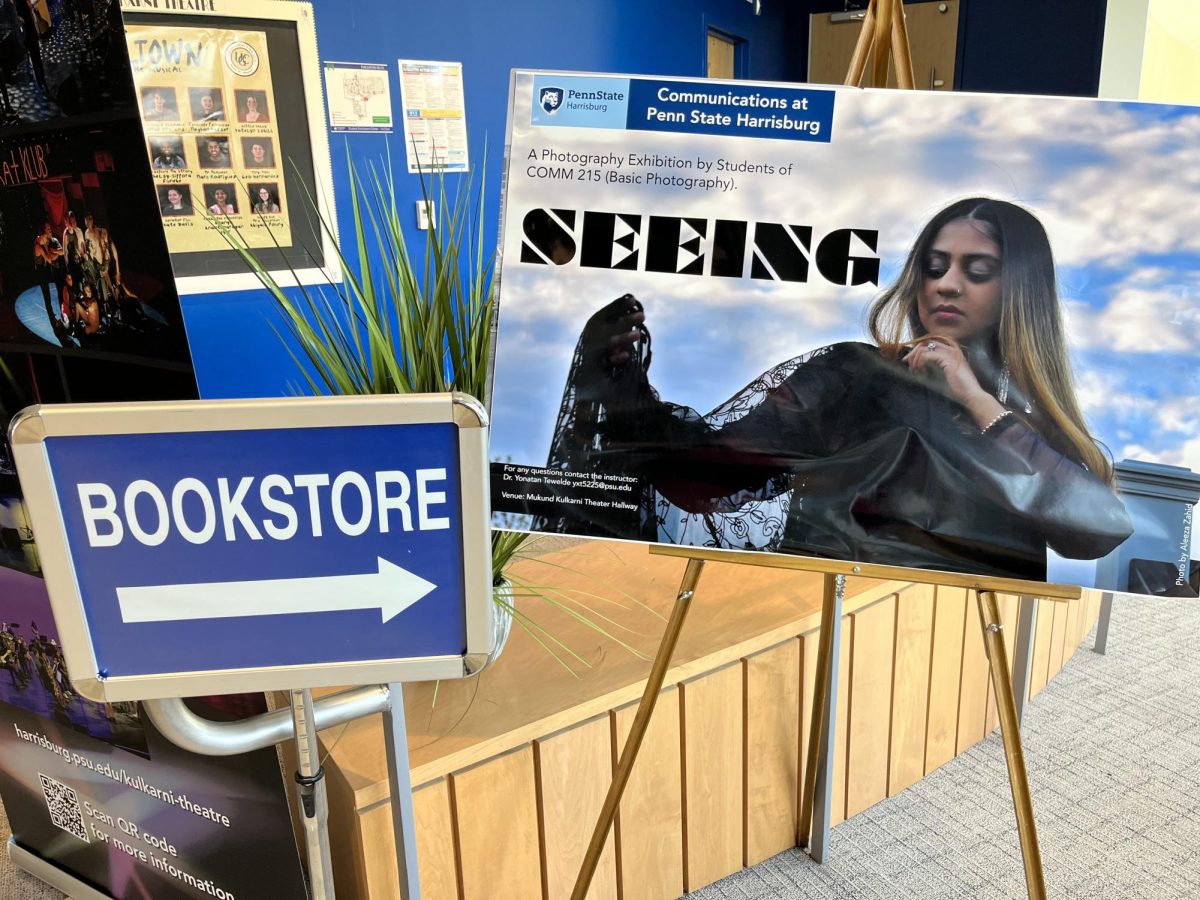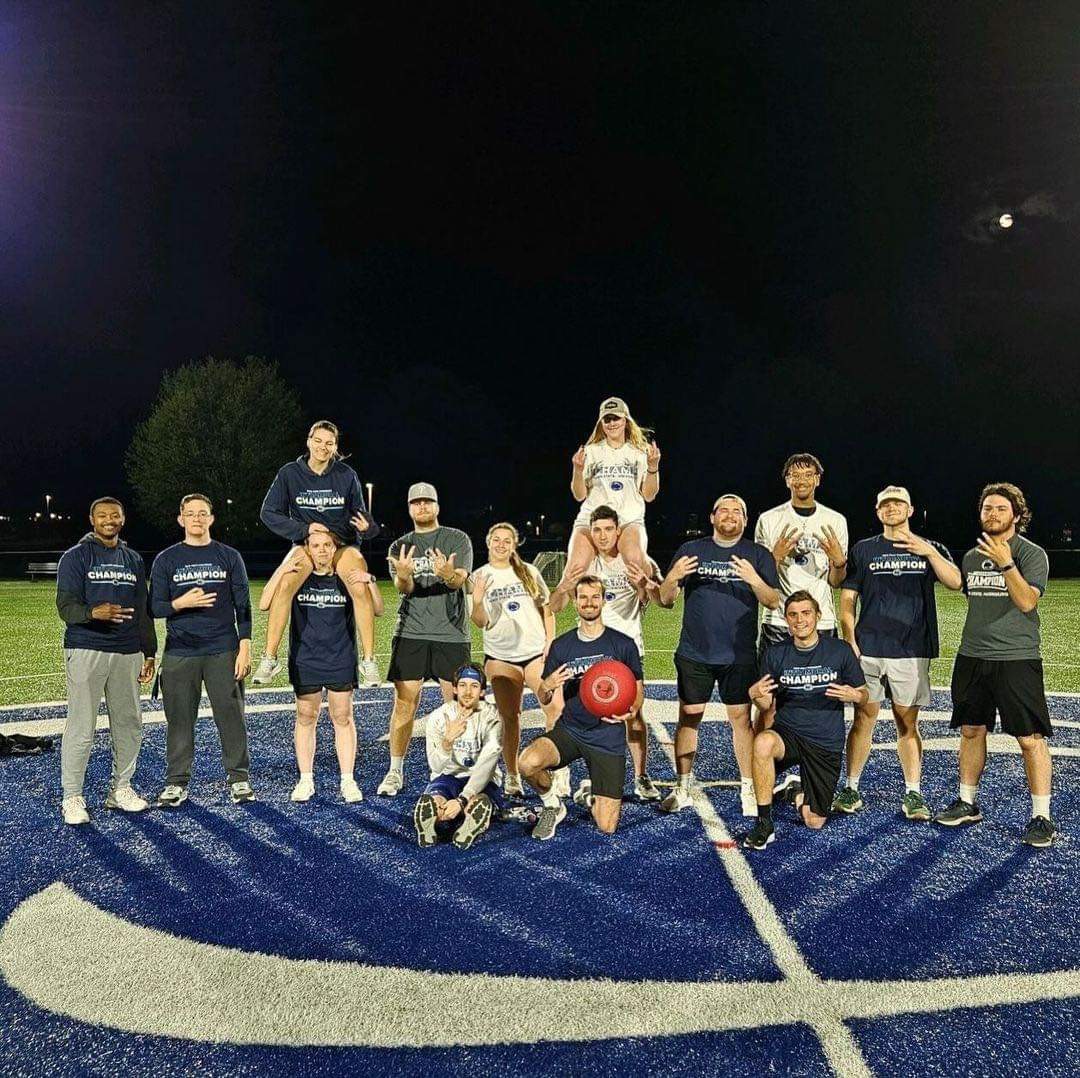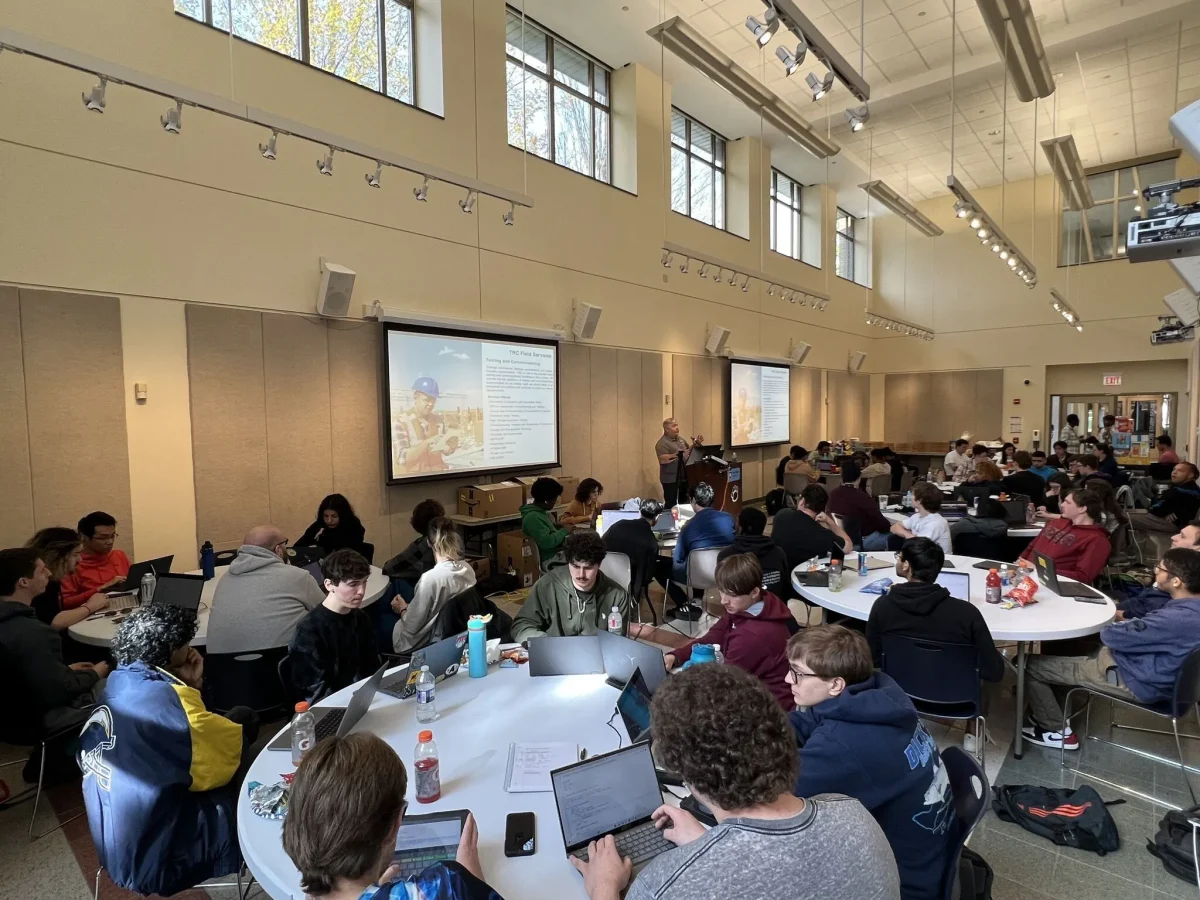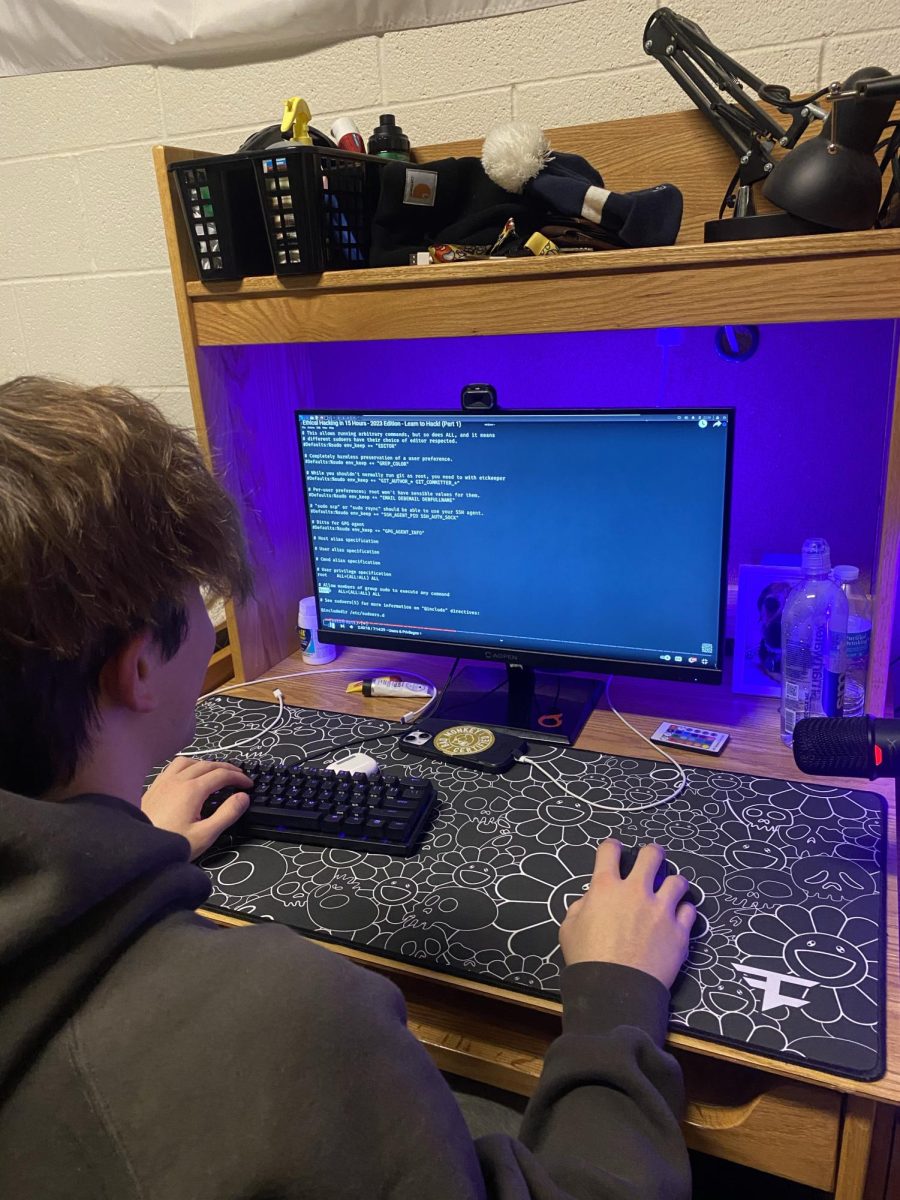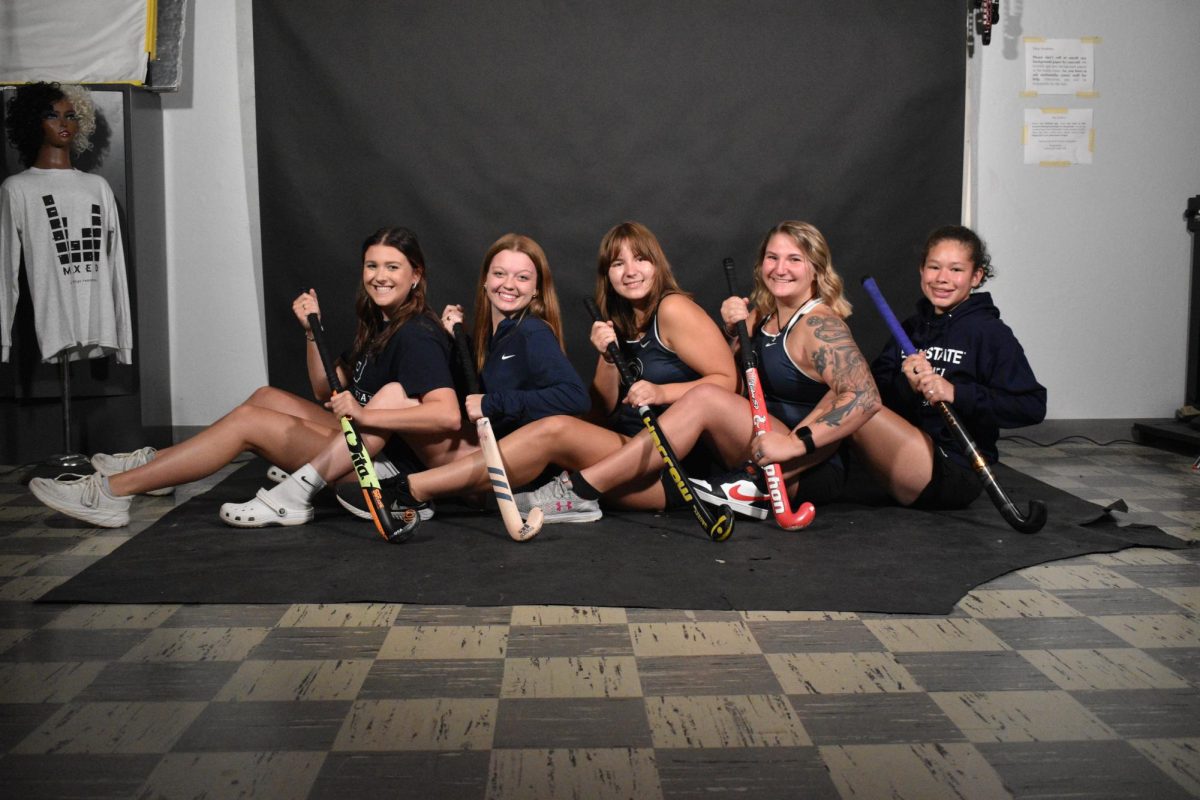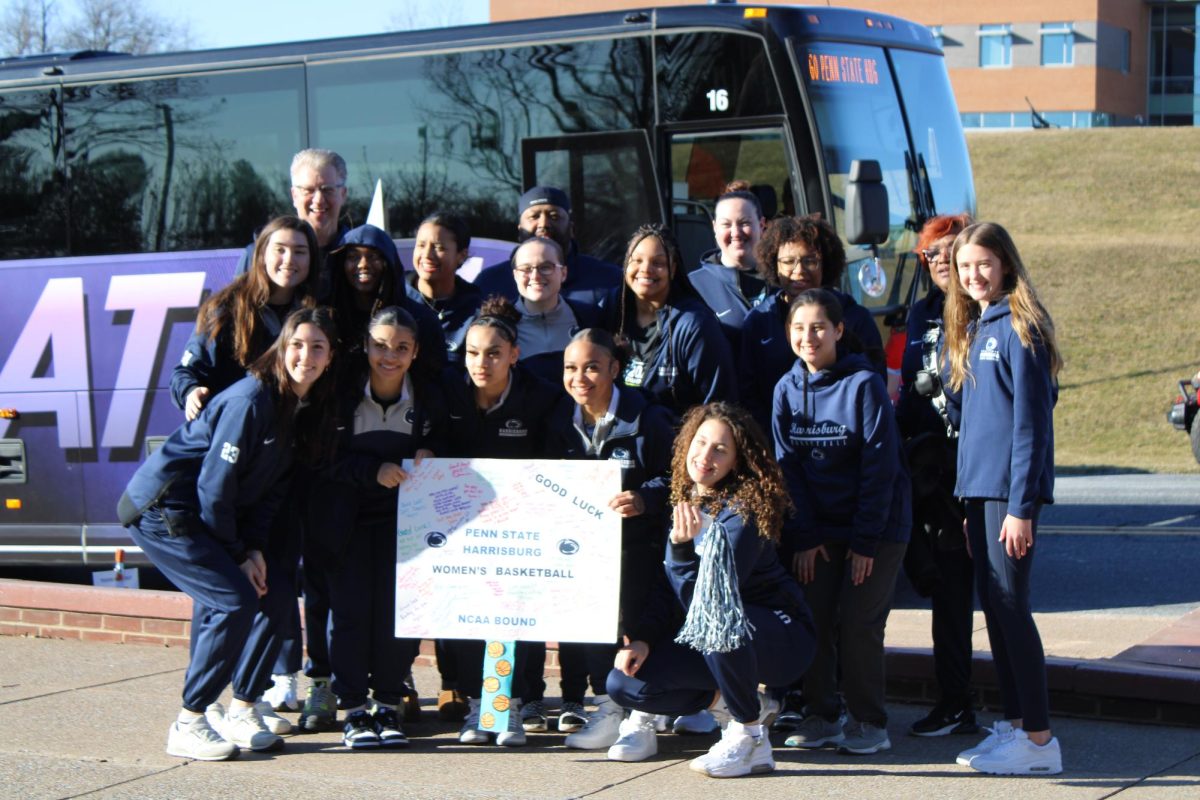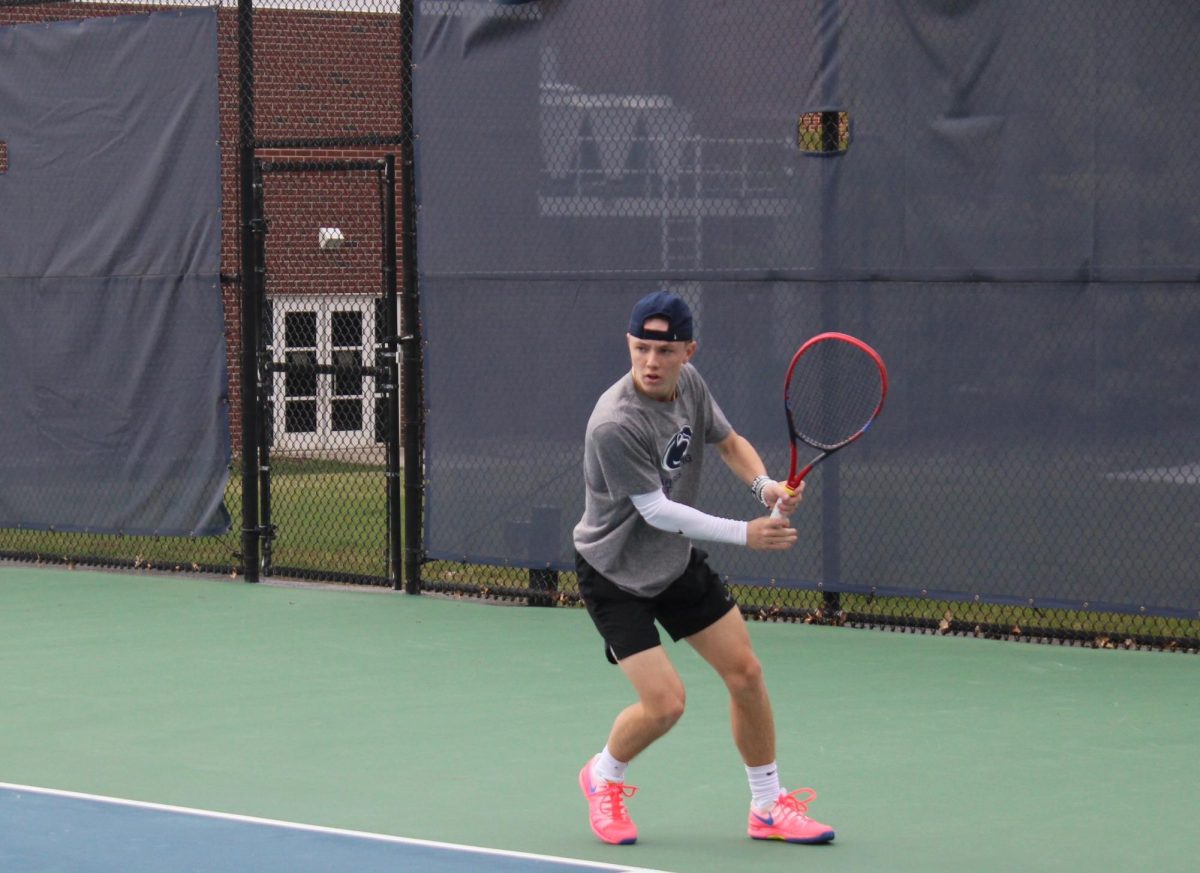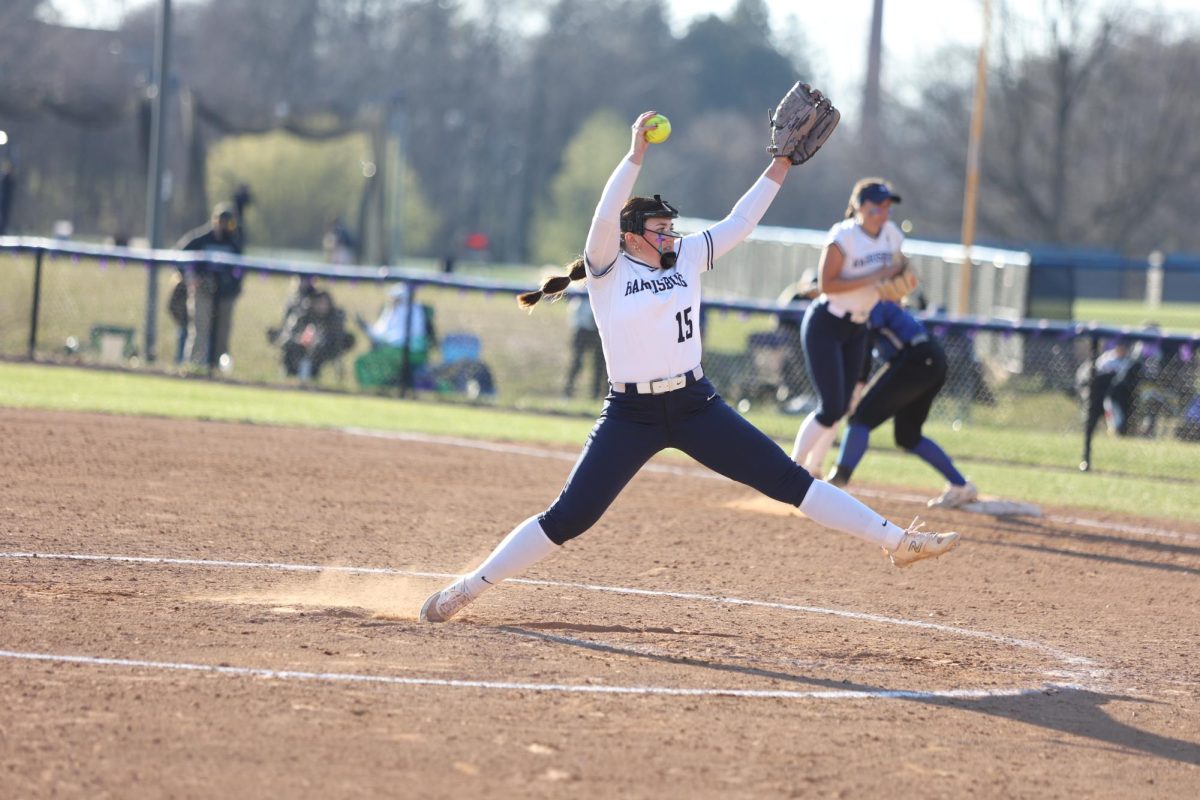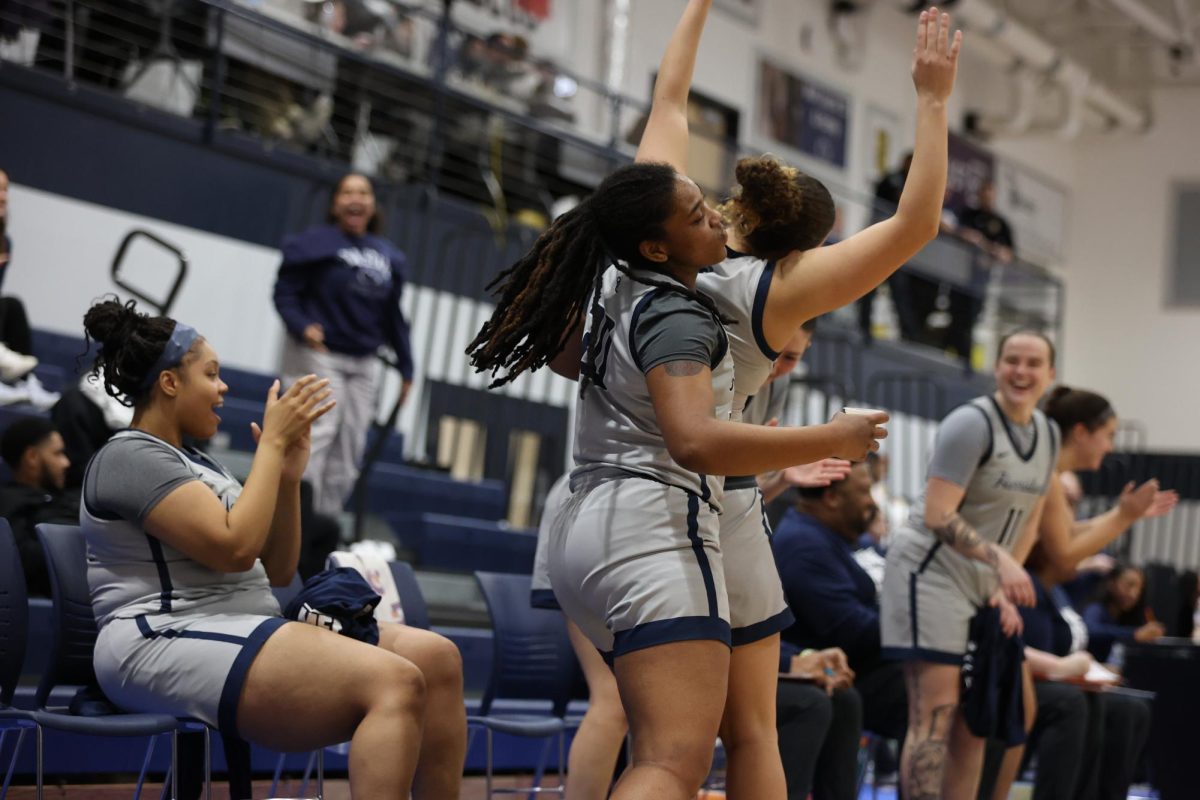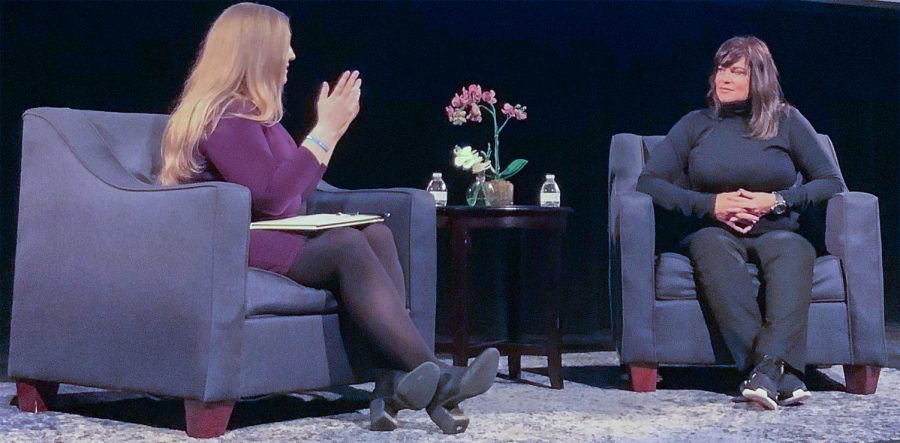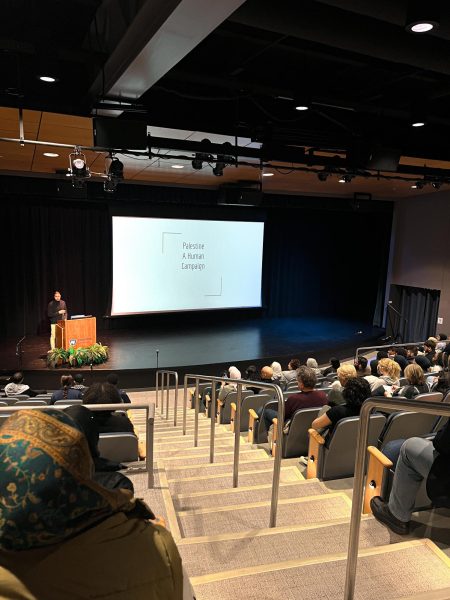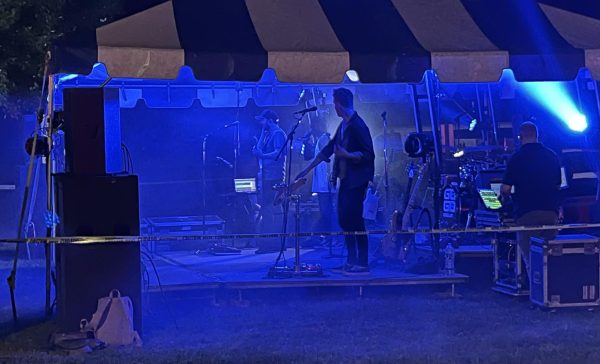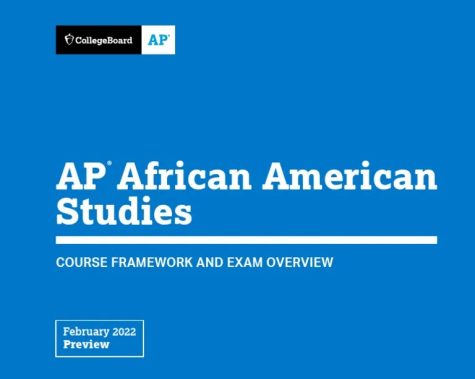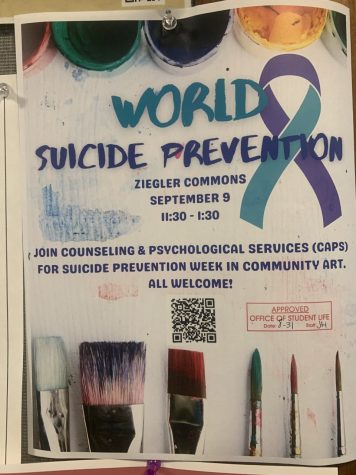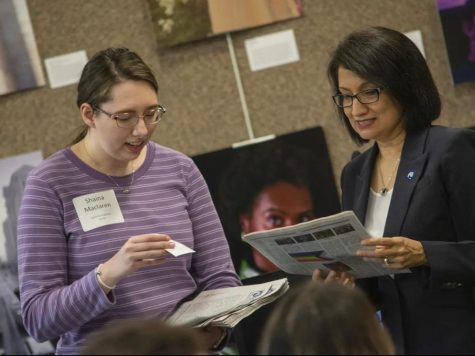NFL Coach Visits Campus to Discuss Her Career Path
Buccaneers coach Lori Locust (right) joins ABC-27’s Allie Berube for a sit-down conversation at Kulkarni Theatre.
50 years ago, Title IX of the Education Amendments was passed and signed into law, prohibiting discrimination against women and girls from education programs or federally funded activities.
Penn State Harrisburg was honored to invite a special guest for a conversation at the Kulkarni Theatre about her journey to becoming a coach in the National Football League.
That guest was Lori Locust, a local Harrisburg native who now serves as a defense coach for the Tampa Bay Buccaneers.
This past March marked National Women’s History Month, celebrating women and their historical contributions to the United States.
Locust was invited for a sit-down conversation about her journey growing up in the sports world and how Title IX has played a huge impact on not only her life but the lives of other women, especially in sports.
The conversation was moderated by local sports anchor Allie Berube of ABC-27.
Growing up in Susquehanna Township in northeast Harrisburg, Locust started off competing in basketball and track and field at the high school level.
“When you’re a kid and when you’re out and you’re running through the neighborhood,” said Locust, “it’s the essence of sports, which you don’t think about in an organized standpoint.”
Locust described her childhood and what living life was like back then compared to what goes on today, from climbing trees to riding bikes and skateboards outside.
Even when she was in school, organized sports became a progression for Locust to be active in a competitive environment like the sports she competed in.
When Locust was around age seven, her friends started playing baseball, which gave her encouragement to take up the sport.
When her mother took her to sign her up for baseball, she was turned away by organizers.
“That was horrifying because that was like your first big smack of ‘you’re different’,” said Locust.
It was then when she turned to softball as the alternative to playing in America’s pastime, with the memory of being turned away from baseball still playing in her mind.
“Obviously because it impacted me to a point where it’s still so raw, you can kind of smooth it over,” said Locust.
During her time at Susquehanna Township High School, Locust spoke about the successes she achieved both in the classroom and on the field of play.
Locust went on to describe the feel of girls’ basketball games from having the same attendance as the boys to the same support from the fans.
It did not matter if it was either boys’ basketball or girls’ basketball. The product of the sport was the same.
After high school, Locust went to college at Temple University in Philadelphia but did not graduate, which she said was one of her regrets to this day.
While at Temple, Locust stayed active and got involved with intramural and club sports, despite her regret of not putting her education first.
“Sometimes your career doesn’t go the way you want it to, your path is not straight,” said Locust, “and you just have to keep moving, doing something towards it.”
When it came to football, Locust’s journey started when she tried out for the local semi-pro women’s team in Harrisburg, where she played for four years.
Locust never had that option to play football in high school back then versus today’s world where there are now women and girls competing in football.
While raising a family with two kids, Locust loved playing the game and despite her playing career ending due to injury, she turned to coaching.
Her high school alma mater reached out and offered her a position on the coaching staff at Susquehanna Township, coaching there for nine years.
In spite of having a coaching job, whether it was at her high school or at the semi-pro level, Locust was never paid for her time there.
“To balance sort of like a tight budget, raising kids, just covering the bills, you really have to find ways to stick to a dream that you’re coming out of pocket for,” said Locust. “That in itself was a challenge.”
Using her time coaching a semi-pro team in Virginia as an example, Locust said the team would give her gas money for a one-way three hour drive to show their appreciation.
Even though staying active in sports was her dream growing up, Locust never looked at getting paid as a motivating factor.
“It was such a progression,” said Locust. “I wanted to continue to get better and I wanted to be able to do it full time but you still have to pay the bills.”
Amid the financial struggles, a football player from a women’s semi-pro league spoke to Locust about an women’s summit in Orlando, Fla., where the NFL career forum was held.
This was the step in Locust’s career that would take her into an internship with the Baltimore Ravens while managing to make ends meet.
After countless calls for job openings, Locust landed a job in Birmingham, Ala. with the semi-pro team in the Alliance of American Football in 2019.
A week after the league folded, Locust received a job offer from the Buccaneers to be their defensive line coach and has since then been coaching in Tampa.
“It’s intimidating when you’re taking a position like this and not knowing how things were actually going to go,” said Locust. “Baltimore gave me a good insight. Having the Temple guys there has been amazing.”
Even in a professional league like the NFL, the stakes can be high at times both during the season and the offseason.
“You’re expecting to hit the ground at a dead sprint,” said Locust. “This isn’t a charity position and it’s not anything that can be prolonged at a certain level.”
Since Title IX was introduced and made into law, it continues to serve as a catalyst in allowing women to have equal opportunity in not just sports but all professions.
“(Locust’s) story is such an inspiration,” said Sydney Hemler, women’s basketball player for Penn State Harrisburg. “Even I see it at the collegiate level, like the opportunities we are given. Seeing where coach Lori has been able to get and where my sister and I were able to get, we’re so thankful.”
Locust believes there is opportunity for women and girls in the sports world, especially in today’s world.
“Some of the young women playing sports today may not understand how it was when we were younger and it’s because of the (Title IX) legislation,” said Locust.
While Title IX has allowed women to break barriers and create new trends, it continues to be an inspiration for women and girls in the years to come.


